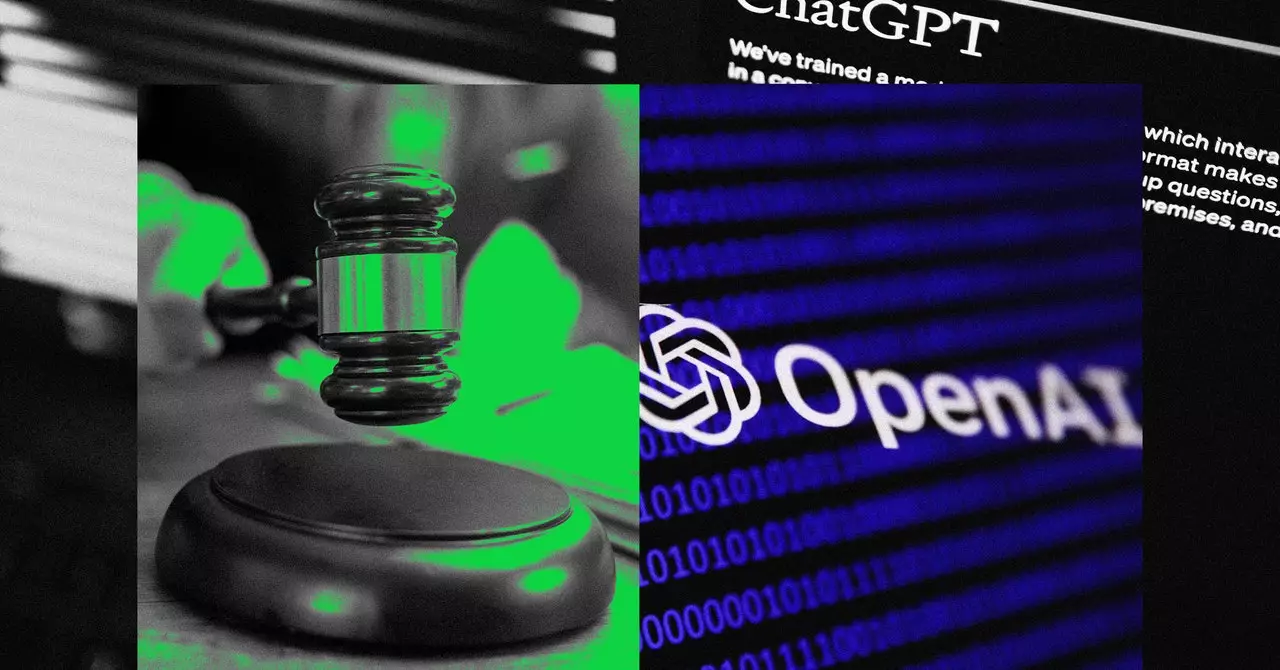The debate surrounding artificial intelligence (AI) and its implications for copyright law has intensified in recent months, reflecting a growing tension between traditional media publishers and AI developers. At the heart of this legal quarrel are claims linking Digital Millennium Copyright Act (DMCA) violations to prominent AI models, notably OpenAI’s ChatGPT. Legal experts and industry stakeholders are weighed against one another as they dissect the implications of ongoing lawsuits that challenge the fundamentally transformative nature of AI technology. This article aims to analyze the key legal arguments surrounding these issues, the reactions from notable figures, and the potential repercussions for the future of copyright in the age of AI.
As AI systems like ChatGPT evolve, their methods of generating text often draw from vast datasets that comprise a mix of publicly available content and proprietary materials. Recently, news organizations like The Intercept and Raw Story initiated legal action against OpenAI, asserting that the latter’s practices encompass copyright violations, thereby raising significant questions about the legality of AI’s operational methods. While the plaintiffs believe their rights are infringed upon due to the allegedly unauthorized use of their articles, some legal scholars contend that these claims may struggle to hold up in court.
Matthew Sag, a law professor specializing in AI, argues that the DMCA claims presented by news organizations lack substantive legal grounding. According to him, the plaintiffs have not convincingly demonstrated that OpenAI engaged in unlawful activities, particularly because they have not provided specific instances where ChatGPT replicated copyrighted materials. Moreover, intellectual property lawyer Ann G. Fort underscores this sentiment by indicating that for these claims to gain traction, the plaintiffs must furnish concrete examples of infringing outputs produced by the AI, thus illuminating the intricate relationship between claims of copyright infringement and demonstrable evidence.
Interestingly, a parallel case involving The Intercept and OpenAI has unfolded differently. After a motion to dismiss based on standing, the court permitted The Intercept to file an amended complaint, which strengthened its case by including an extensive array of exhibits. This legal maneuvering serves as a reminder that the court system is rapidly adapting to the complexities of AI and copyright disputes. Herein lies the crux of the problem: as AI systems become increasingly sophisticated, the traditional frameworks of copyright law are being tested, forcing legal entities to develop innovative strategies to address these evolving contexts.
Although the recent dismissal of claims by Raw Story and Alternet poses immediate challenges, Judge McMahon’s decision does not preclude future arguments regarding possible violations beyond the DMCA framework. The judge clarified that although the DMCA claims fell short, the overarching issue of infringement remains open to discussion— paving the way for legal battles to commence in different arenas or under alternative legal theories. It illustrates a broader concern regarding the adaptation of copyright law to remain relevant in an era of rapid technological advancement.
Experts like James Grimmelmann suggest that the current legal discourse surrounding DMCA claims and AI could lead to substantial changes within copyright law, possibly signaling a “potential earthquake” beyond the realm of AI technology. As courts grapple with the legal intricacies of modern AI applications, novel interpretations of existing laws are likely to emerge. Such transformations could redefine the rights of content creators while simultaneously shaping the future landscape of digital technology.
The ramifications extend further, questioning the fundamental balance between innovation and intellectual property rights. If courts lean toward protecting AI-generated content as a form of fair use, it could empower developers to leverage more varied sources without facing substantial legal repercussions. Conversely, should the courts side with traditional media publishers, this may usher in stricter regulations governing how data is utilized, ensuring that creators receive their due compensation when their original works are repurposed in AI training models.
As the legal battles surrounding AI and copyright unfold, stakeholders from both sides of the fence must prepare for a reshuffling of established norms. The growing intersection of technology and law necessitates a thorough examination of existing regulatory frameworks and their applicability in contemporary contexts. With the legal system at a crossroads, the outcomes of these lawsuits may set crucial precedents, influencing not just the AI industry but the broader landscape of digital publishing and copyright in the future. The ongoing discourse serves as a potent reminder of the delicate equilibrium between innovation and intellectual property, raising essential questions regarding who ultimately holds the rights to content in an AI-driven world.


Leave a Reply